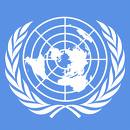
U.N. Secretary General Ban Ki-moon’s latest quarterly report on Sudan highlighted some concerning trends in the political and security situation leading up to the referenda and the end of the CPA period. The U.N. released the report in mid-October, which covered a reporting period of July 19 to September 30.
On referenda and post-referendum preparations, Ban rightly placed responsibility on the two Sudanese ruling parties, highlighting the political disagreement between the NCP and the SPLM that is hindering critical technical preparations for the two votes. Not mincing his words, the secretary general said in his recommendations:
There is simply no time remaining for political confrontation and stalemates. Bearing in mind their obligation to the Sudanese people, I call upon the Comprehensive Peace Agreement parties to rise to the occasion and take advantage of this opportunity to demonstrate real leadership by finding solutions that address all of the legitimate concerns at stake.
Currently, preparations for the southern referendum are stalled over incomplete funding from both the national and southern Sudanese governments as well as the international community. Just one week out from when registration is slated to begin—a process that will be critically important for the credibility of the vote—the hiring and training of registration staff are still incomplete. (To keep track of the vote’s logistical progress, check back on this handy chart from the U.S. State Department.) Post-referendum talks, which began promisingly in July, “have made little progress in reaching agreement on key substantive issues.” Meanwhile, elections still have to be held in Southern Kordofan, and “uncertainty” over funding for the commission created to conduct popular consultations in Blue Nile State is a “significant concern,” according to the secretary general.
On the security front, the report noted continuing violence instigated by dissident elements in the South (a situation that has seemingly calmed since reconciliation efforts by the SPLM), noting in particular conflict between the SPLA and the Shilluk community. Disturbingly, the secretary general also highlighted the fact that the U.N. mission continued to receive “reports of serious abuses carried out by the SPLA during its military operations and civilian disarmament campaigns.” Furthermore, the U.N.’s “concerns about the potential for security incidents,” will likely heighten now that the migration season has begun, straining tensions in already volatile Abyei and other the border areas.
And while the two parties have been trading accusations of troop build-ups and skirmishes along the border, it seems that neither CPA party made an effort in the last reporting period to facilitate the U.N. mission’s military observation component of its mandate or the U.N.’s right to freely move—and thus monitor potential human rights abuses or violence—in agreed-upon areas. The report detailed incidents during which the northern army denied U.N. access to Heglig and Kharasana, both suspected high-militarized and strategic border spots. Meanwhile, the SPLA denied access to Kodok in Upper Nile State, an area in which reports of southern army abuses have emerged. The secretary general also flagged what he called “entirely unacceptable” incidents in which the SPLA not only detained UNMIS patrols, but also physically assaulted and held U.N. personnel at gunpoint.

